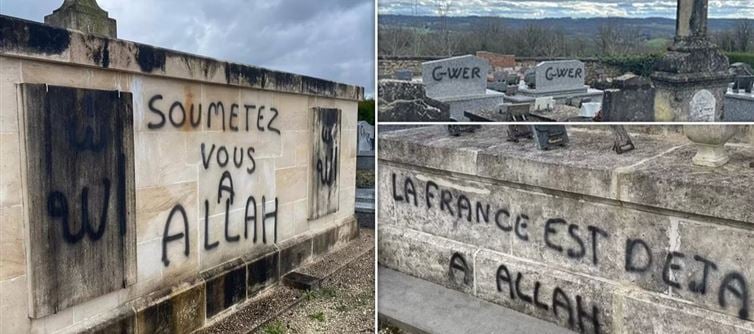
This incident is part of a broader trend in france, where places of worship—churches, synagogues, and occasionally mosques—as well as cemeteries have increasingly been targeted by extremists of various ideologies. france, with its firm stance on secularism and free expression, has become a flashpoint for Islamist radicalism. Attacks like this feed into a growing perception that certain fringe elements are deliberately seeking to undermine the country’s secular and pluralistic fabric through acts of religious aggression. The fact that this is not an isolated event but part of a pattern reinforces concerns that more coordinated or ideologically driven efforts may be at play, rather than random acts of delinquency.
French authorities have vowed to investigate and prosecute those responsible, but the political and social implications run deeper. Incidents like these exacerbate societal divisions and fuel public frustration over integration, extremism, and national identity. They also place pressure on Muslim communities to distance themselves from radicals, despite having no connection to such acts. The challenge for france is twofold: to enforce the rule of law decisively against those who commit hate crimes, and to do so in a way that avoids blanket suspicion and preserves the unity of a diverse, secular republic. Without this balance, france risks deepening polarization in an already fraught social landscape.




 click and follow Indiaherald WhatsApp channel
click and follow Indiaherald WhatsApp channel